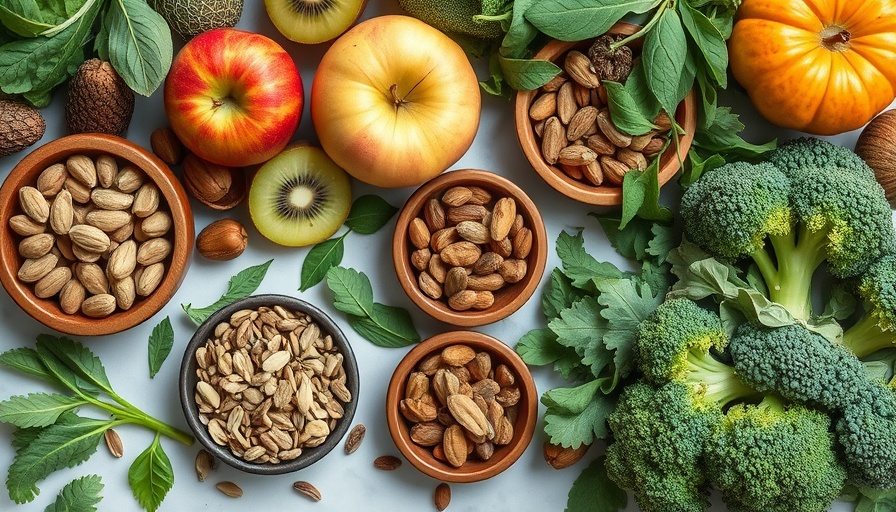
Unlocking the Secrets of Nutrient Density
In today's health-conscious world, many are searching for ways to enhance their well-being through diet. A focus on nutrient-dense foods is one of the most effective strategies for achieving optimal health. Nutrient density refers to foods rich in vitamins, minerals, and other beneficial compounds while being low in calories. This article will explore the top nutrient-dense foods you should include in your diet to live a healthier lifestyle.
The Nutritional Powerhouses
Prepare to discover a list of foods that are not just filler on your plate but rather packed with health benefits. Foods like spinach, kale, avocados, blueberries, and quinoa, are known for their dense nutrient profiles.
1. Leafy Greens: The Royal Benefactor of Health
Leafy greens are extremely high in essential vitamins such as A, C, and K. They also provide critical minerals like calcium and iron. Not only do they contain incredible antioxidants that help fight free radicals in the body, but they also support digestive health due to their high fiber content. Including a variety of leafy greens in your meals can significantly reduce the risk of chronic illnesses.
2. Fatty Fish: The Omega-3 Superstar
Fatty fish such as salmon and sardines are great sources of omega-3 fatty acids, which are vital for heart and brain health. These nutrients not only support cognitive function but help reduce inflammation in the body. Including fatty fish a couple of times a week can improve your overall health and wellness.
3. Berries: Nature's Sweet Antioxidants
Blueberries, strawberries, and raspberries are not just delicious; they are also packed with antioxidants that help combat oxidative stress. These berries are low in calories and high in fiber and vitamins, making them an excellent addition to yogurt or smoothies for a sweet yet healthy treat.
4. Avocados: The Creamy Nutrition Giants
Rich in heart-healthy monounsaturated fats, >avocados offer a host of nutrients, including potassium and vitamin E. Their high fiber content improves digestive health and promotes a feeling of fullness, which can help with weight management.
5. Legumes: The Protein Powerhouse
Legumes, such as lentils and chickpeas, serve as fantastic vegetarian protein sources. They are also rich in fiber and crucial nutrients like folate and magnesium. Incorporating legumes into meals can enhance satiety and provide long-lasting energy.
The Importance of Nutrient Density
Understanding nutrient density can help you make informed dietary choices. Foods that are dense in nutrients offer more benefits without the extra calories found in less healthy options. For instance, a plate of leafy greens and fatty fish provides more vitamins and health benefits than a plate filled with processed foods.
Building a Healthier Future
Incorporating these power foods into your daily diet is an essential step toward improving your health. As you stock your pantry with these nutrient-dense options, you'll not only nourish your body but also support long-term wellness.
Practical Insight: Meal Planning for Nutrient Density
To maximize the benefits of nutrient-dense foods, consider implementing a meal-planning routine. By preparing meals using these foods, you can take control of your health and make the most out of your diet. Try experimenting with colorful salads, wholesome grain bowls, or hearty soups that feature these nutrient-rich ingredients.
The Takeaway
Everyone deserves to optimize their health, and nutrient-dense foods present an effective way to achieve this. These foods not only support your body's needs but also empower your dietary choices. As you embark on your health journey, remember that small changes can lead to significant results.
 Add Row
Add Row  Add
Add 




Write A Comment